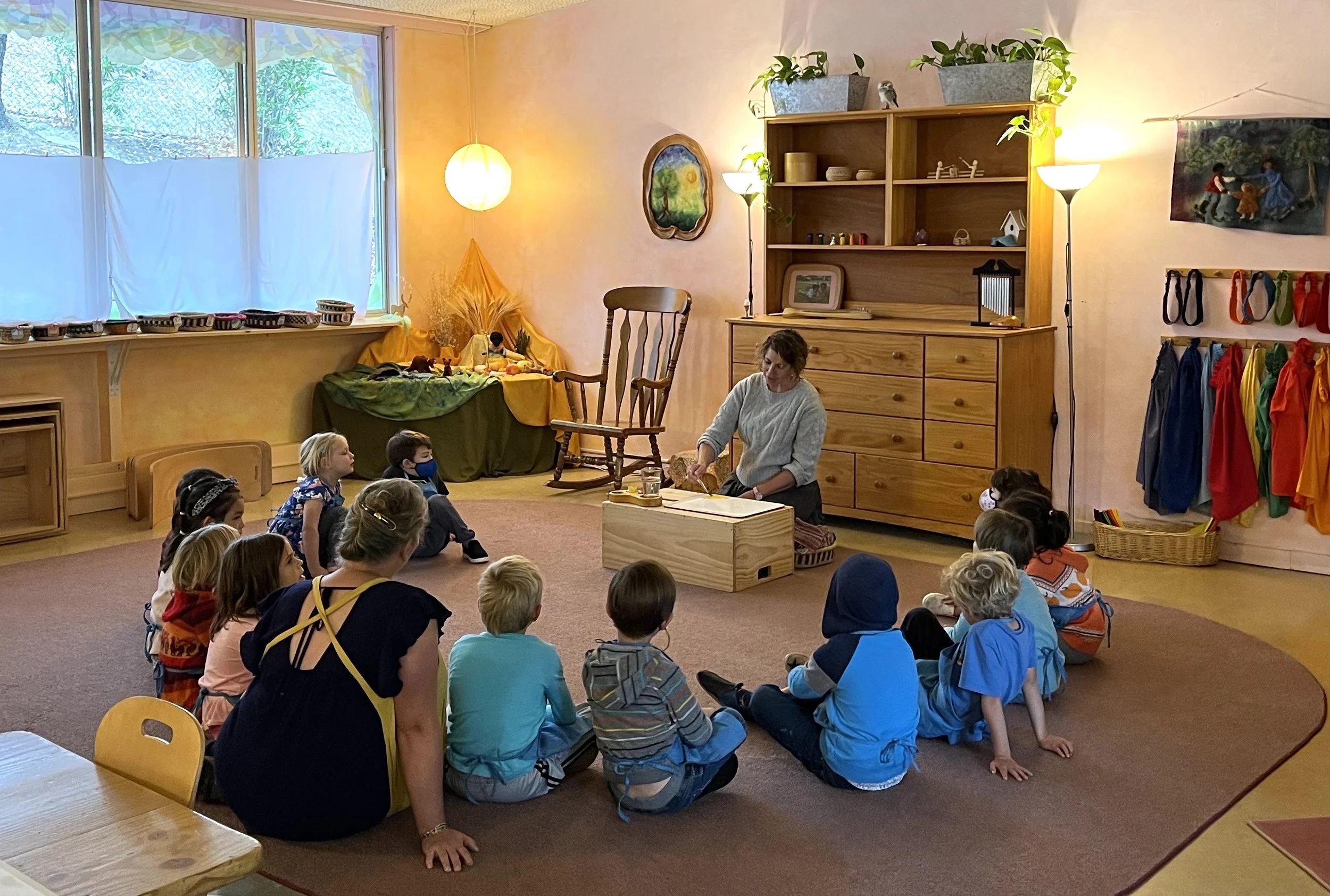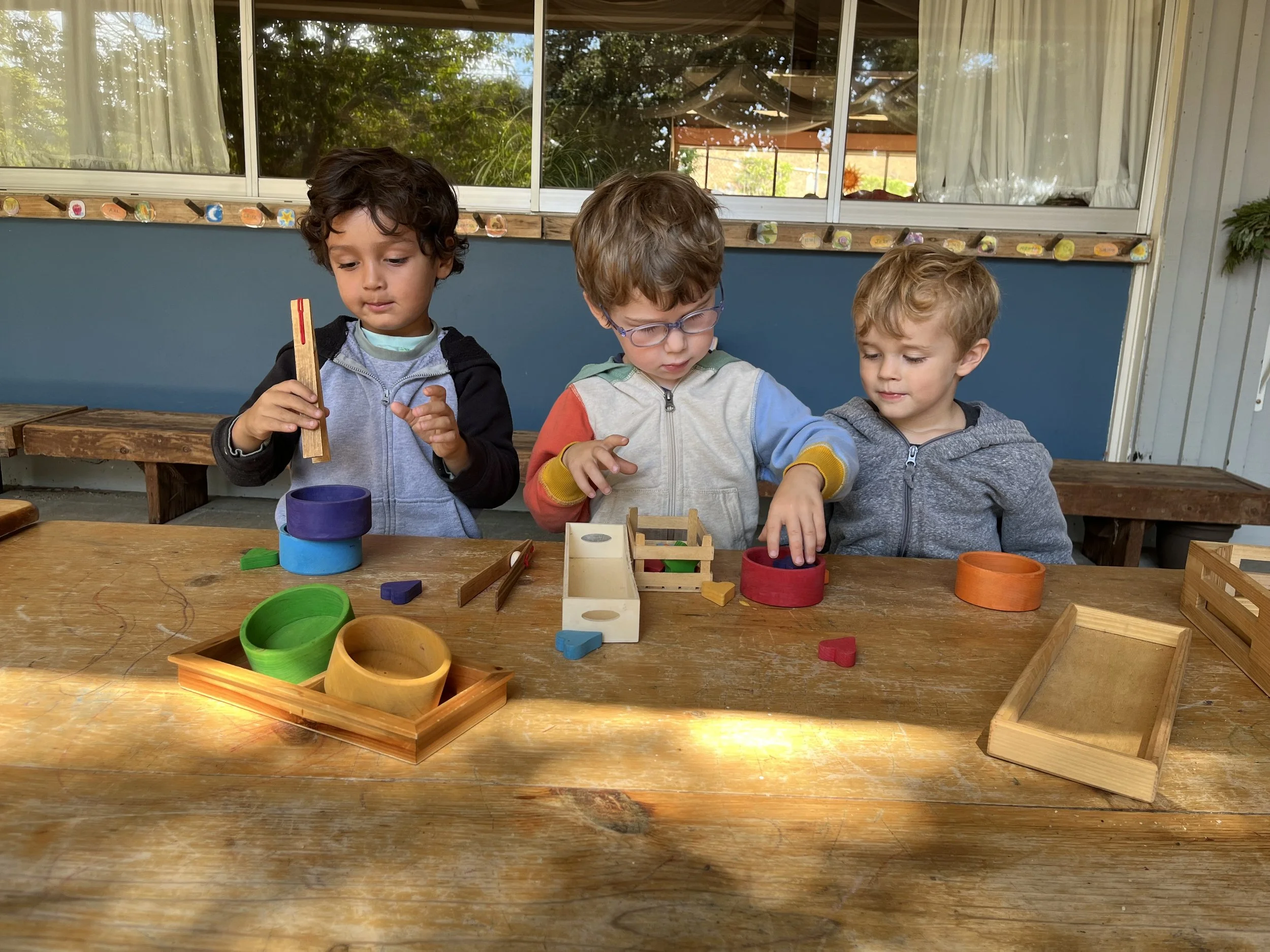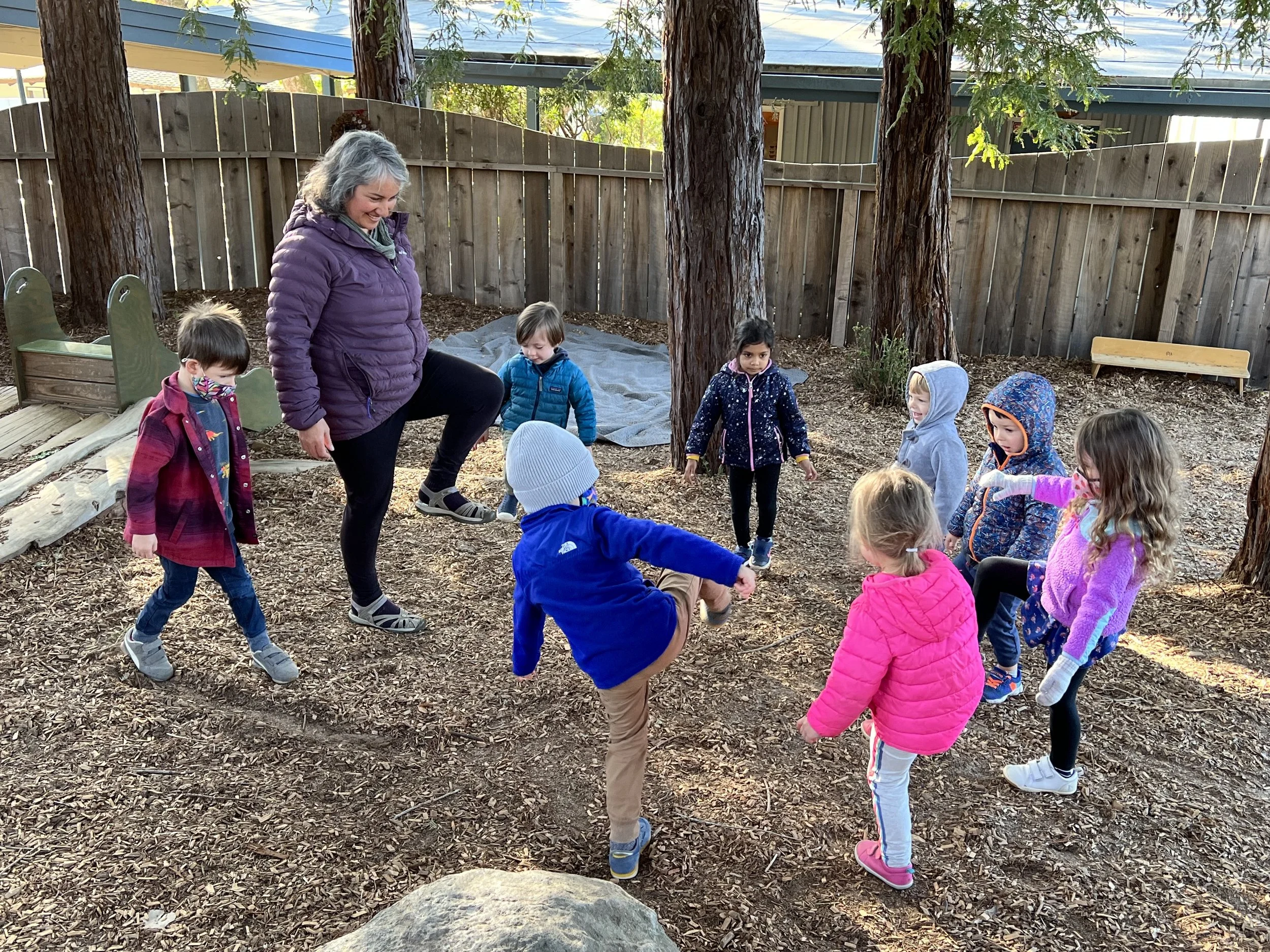Rich in Language, Inspired by Story: Literacy in Waldorf Early Childhood
Learning to read and write are a fundamental aspect of early education—and arguably the most important skills that children learn in school. At Marin Waldorf School, our innovative and research-backed approach to literacy begins in early childhood, where children are immersed in rich language experiences, laying the groundwork for formal literacy instruction in elementary school—including a program of structured literacy that begins in 1st grade.
Importantly, Marin Waldorf School’s approach to literacy goes beyond the mechanics of reading and writing. Here, we seek to foster strong vocabulary and comprehension skills, an ability to read deeply and critically, and a profound lifelong love of stories and language that will last throughout a lifetime.
Early childhood is the first step in the journey. Here’s our approach.
Classrooms Rich in Language
Researchers have found that a key predictor of academic success over the long term is growing up in an environment rich in language. Marin Waldorf School’s preschool and kindergarten programs place tremendous emphasis on complex and high-quality opportunities to build language skills through fairy tales, stories, songs, and verses, as well as activities in which students must listen carefully and follow a teacher’s indications or instructions during circle time or play.
“Time spent on fostering speaking and listening skills is particularly important for reading comprehension — studies have shown that oral language activities support reading comprehension skills, even for more complicated texts in later grades,” writes academic publisher McGraw Hill in the article “Foundational Literacy: What Research Tells Us About Speaking and Listening.”
A Focus on Story
Story time is a beloved moment in the MWS preschool and kindergarten day. It is also a crucial element in our literacy program. Through listening to stories with complex themes and high-quality vocabulary, children learn to understand the narrative structure of a story, from beginning to middle to end, alongside new words and syntactic structures.
Particularly important is that our teachers tell stories from memory, rather than using picture books to guide them. This approach encourages imagination and mental picturing, a key skill in literacy development. In fact, recent studies show a strong connection between children’s reading skills and their capacity to create mental representations or mental images. Mental picturing—like many other pre-literacy skills—must be encouraged and practiced.
Human-Centered Learning
In a recent interview with Ezra Klein at the New York Times, education policy expert from the Brookings Institution Rebecca Winthrop said, “We know that in early childhood, the more screen time kids have, the less language acquisition they have. We know that when infants are learning language, they learn a lot of language from human-to-human contact. And if you put the same sentences on a screen, they don’t learn it.”
This is more than just Winthrop’s own conclusion. Ample research shows that children build a deeper understanding of material when they are taught by humans. Across disciplines, human relationships are at the core of our school’s approach to instruction. We never use technology in early childhood classrooms, giving children a foundation in the rich and varied world of human communication.
The Value of Play
Our school’s play-based early childhood programs are built on the firm belief that “play is at the core of the development of the child,” as explained by education researcher Syeda Sazia Zaman, a researcher at theBRAC Institute of Educational Development, in a report on literacy published by UNICEF. At Marin Waldorf School, our daily rhythm in preschool and kindergarten includes ample time for unstructured, social, child-led play, both indoors and outdoors.
When it comes to early literacy, play is essential. Research has shown that children use their most advanced language skills during free play with peers. “Through play, children can express their thoughts, ideas and feelings, building essential communication skills,” says a paper from the National Literacy Trust. “Play stimulates creativity and innovation, creates a solid foundation for literacy and ignites a lifelong love for learning.”
In the same article, the authors also discuss the importance of time outdoors. “Play outdoors can also provide rich opportunities for language development,” they write. “Children often communicate differently when outside – with freer, louder voices – and are often enthusiastic to share and talk about their discoveries.”
Why We Don’t Rush Reading
There is a common misconception that Waldorf schools delay reading instruction until 1st or 2nd grade. In reality, literacy skills are woven into every day in the Marin Waldorf School preschool and kindergarten. It is important to underline, however, that effective early literacy instruction does not equal early reading. Our program is intentionally designed to emphasize core skills in comprehension, vocabulary, mental picturing, and motor development before introducing the mechanics of reading and writing.
Why? Because Waldorf education is build around a deep understanding of child development and current scientific research on brain development. We teach subjects and skills when children are ready to learn them, making instruction more effective. When it comes to reading, a wide breadth of research shows that reading instruction in kindergarten provides no meaningful long-term benefits and may even be detrimental to children by creating stress or pressure to achieve before children are cognitively ready.
And it isn’t just a Waldorf innovation. Finland, widely regarded as having Europe’s top educational system, students receive no formal instruction in reading and writing until they begin grade school at age 7; however Finnish students routinely outperform students from other countries in reading and writing over the long term. These outcomes, along with continuing research on early childhood, have led countries like England and Australia to begin advocating for later school starts and a return to social, play-based classroom environments for young children.
At Marin Waldorf School, we choose to follow an effective and developmentally appropriate approach to reading and writing—and one that leads to long-term positive outcomes over the long term.





